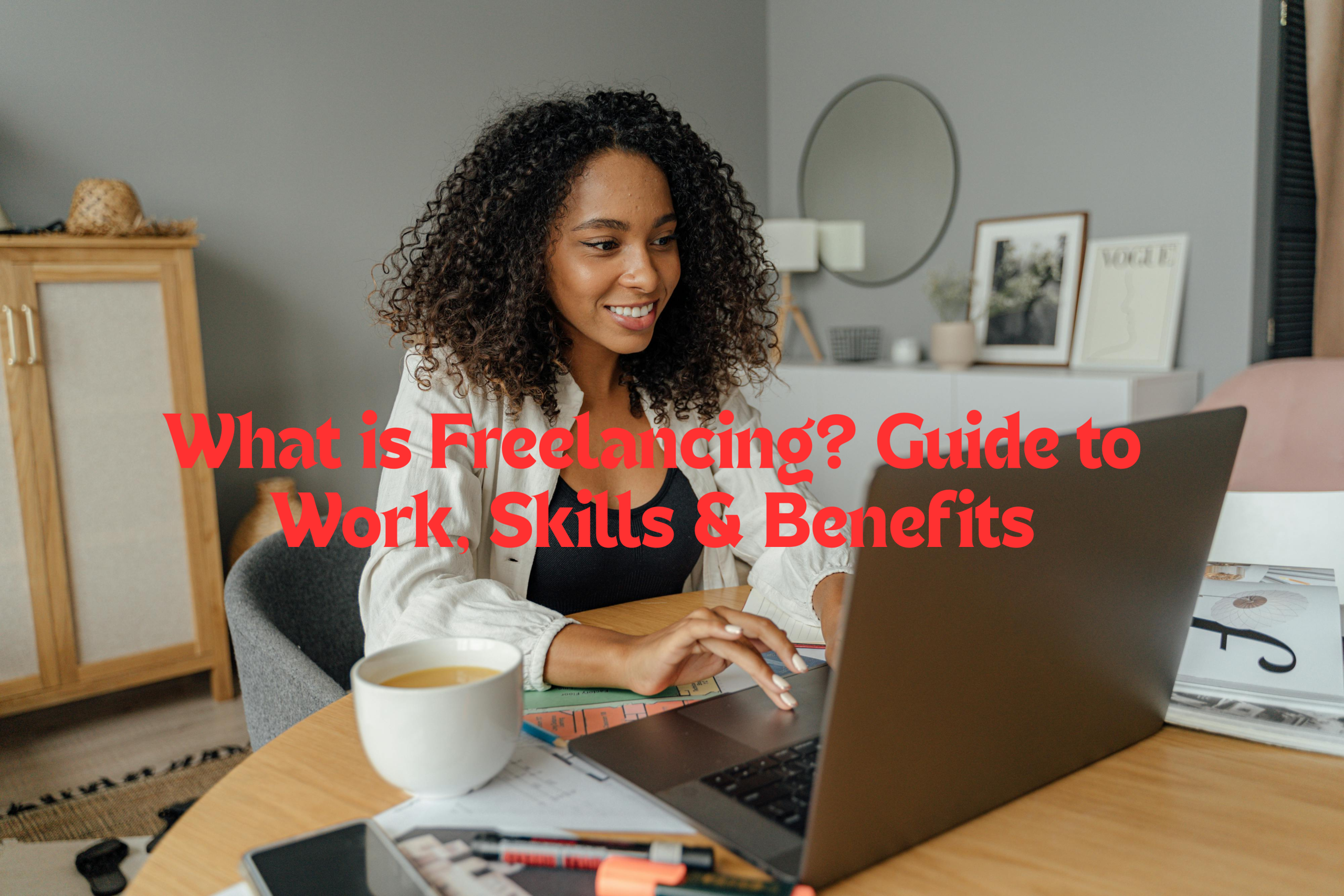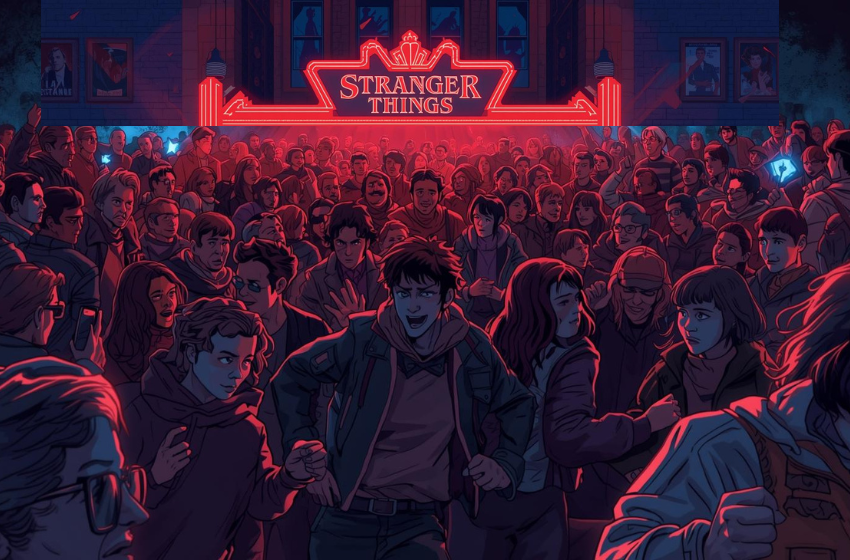
What is Freelancing? Guide to Work, Skills & Benefits
What is freelancing, and why are so many people choosing it today? Freelancing means working independently instead of doing a regular 9-to-5 job. A freelancer offers skills or services to clients on a project or contract basis. It can include writing, designing, programming, marketing, or many other fields.
The main reason freelancing is so popular is flexibility. You can decide your working hours, choose your clients, and even work from anywhere. At the same time, it requires responsibility because you manage your own work, deadlines, and income. This guide will explain freelancing in simple words, cover its benefits, challenges, and how you can start your freelancing journey.
What is Freelancing?
Freelancing means working for yourself instead of being employed by a single company. As a freelancer, you provide your skills or services to clients on a project basis. For example:
1. A graphic designer may create a logo for one company today and design social media posts for another company tomorrow.
2. A writer can write blogs for different businesses without working in their offices.
In freelancing, you are your own boss. You decide who to work with, how much to charge, and when to work.
How Does Freelancing Work?
Freelancing usually works through short-term contracts or projects. Clients hire freelancers when they need specific tasks done.
Here’s how it works step by step:
- A client posts a project or directly contacts a freelancer.
- The freelancer accepts the work and agrees on payment.
- The freelancer completes the task and submits it.
- The client reviews it and releases payment.
Many freelancing jobs are found on online platforms such as:
- Upwork
- Fiverr
- Freelancer.com
- Toptal
These platforms connect freelancers with clients worldwide.
Popular Freelancing Skills
Almost any skill can be turned into freelance work. Some of the most in-demand skills include:

- Writing and Editing: Blogs, articles, copywriting, and proofreading.
- Graphic Design: Logos, posters, social media graphics.
- Web Development: Websites, apps, and coding projects.
- Digital Marketing: SEO, social media management, paid ads.
- Video Editing: Short-form videos, reels, ads.
- Virtual Assistance: Managing emails, scheduling, and admin tasks.
Benefits of Freelancing
Freelancing comes with many advantages. That’s why more people are joining this field every day.
1. Flexible Schedule
Freelancing gives you control over your time. You can choose to work early in the morning, late at night, or whenever you feel most productive.
2. Work From Anywhere
You don’t need a fixed office space. With a laptop and internet, you can work from home, a café, or even while traveling.
3. Variety of Clients
Freelancers often work with clients from different countries and industries. This brings new experiences and makes projects more exciting.
4. Unlimited Earning Potential
Your income depends on your skills and effort, not a fixed salary. With consistency and experience, you can earn far more than a regular job.
5. Independence
As a freelancer, you are your own boss. You don’t wait for promotions or approvals, which gives you full freedom in your work decisions.
Challenges of Freelancing
What is freelancing challenges? Like every career, freelancing also has challenges. Knowing them helps you prepare better and handle them with confidence.
1. Income Uncertainty
Unlike a regular salary, freelancing income can go up and down. Some months may bring many projects, while others may be slow. This means freelancers need to budget wisely and save for low-income months.
2. No Job Benefits
Freelancers don’t get benefits like health insurance, paid holidays, or retirement plans unless they arrange them themselves. This can be costly and requires extra planning. Freelancers often need to set aside money for these expenses.
3. Self-Discipline Needed
Since no boss is watching, freelancers need to manage their time and stay motivated on their own. It’s easy to get distracted or delay work. Strong focus and good routines are important for success.
4. Finding Clients
In the beginning, it can be hard to get clients and build trust. It takes effort and patience. Many freelancers start with small projects and gradually build a strong profile to attract bigger opportunities.
How to Start Freelancing?
Many beginners first ask, what is freelancing? In simple words, freelancing means offering your skills and services to clients independently, without being tied to one employer. Now, let’s see how you can start your freelancing journey step by step.
Step 1: Identify Your Skill
Think about what you are good at. It could be writing, designing, teaching, or even data entry.
Step 2: Build a Portfolio
Create samples of your work. If you don’t have clients yet, make your own practice projects to show your skills.
Step 3: Create Online Profiles
Sign up on freelancing websites like Upwork or Fiverr. Make a professional profile that highlights your skills and experience.
Step 4: Start Small
In the beginning, take small projects. They help you build experience, reviews, and trust with clients.
Step 5: Market Yourself
Share your work on LinkedIn, Instagram, or personal websites. Social media can attract direct clients.
Step 6: Manage Your Finances
Keep track of your income, expenses, and savings. As a freelancer, you handle your own money matters.
Tips to Succeed in Freelancing
Freelancing is competitive. To succeed, you need more than just skills. Here are some practical tips:
- Communicate Clearly: Always be polite and clear with clients.
- Meet Deadlines: Deliver work on time to build trust.
- Keep Learning: Improve your skills to stay ahead in the market.
- Set Fair Rates: Don’t undervalue yourself, but also stay realistic at the start.
- Stay Professional: Treat freelancing like a business, not just side work.
Why Freelancing is the Future of Work?
The world is moving towards remote and flexible work. Companies prefer freelancers because:
- They save costs on full-time employees.
- They get access to global talent.
- They can hire experts only when needed.
Freelancing offers workers both freedom and chances to grow. This makes freelancing not just a trend, but the future of work.
Final Thoughts
What is freelancing? At its core, freelancing is about independence, flexibility, and using your skills to earn money. It may feel uncertain at first, but with effort and consistency, it can become a rewarding career.
Whether you are a student, a professional, or someone looking for extra income, freelancing can be a great option. Start small, learn along the way, and build your career step by step.
The future belongs to people who can adapt, work smart, and stay independent. Freelancing allows exactly that.









2 Comments
Hello everyone!
I came across a 139 valuable site that I think you should dive into.
This resource is packed with a lot of useful information that you might find insightful.
It has everything you could possibly need, so be sure to give it a visit!
https://unaidsstrategy2021.org/progressive-slots/how-to-gamble-in-the-online-casino-and-increase-your-chances-of-winning-in-online-casino-games/
Furthermore remember not to neglect, guys, which you constantly can in this publication discover answers to the the absolute tangled questions. The authors attempted to present the complete content using an extremely accessible method.
Hello team!
I came across a 139 fantastic site that I think you should check out.
This site is packed with a lot of useful information that you might find helpful.
It has everything you could possibly need, so be sure to give it a visit!
https://unaidsstrategy2021.org/progressive-slots/how-to-gamble-in-the-online-casino-and-increase-your-chances-of-winning-in-online-casino-games/
Additionally do not forget, everyone, — you constantly may in the publication find responses to the the very confusing queries. We tried to present all of the content using the extremely understandable method.